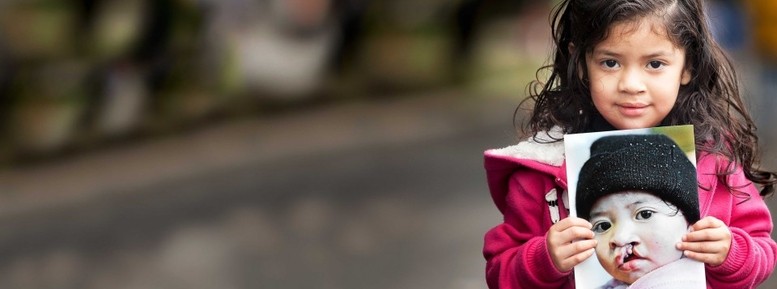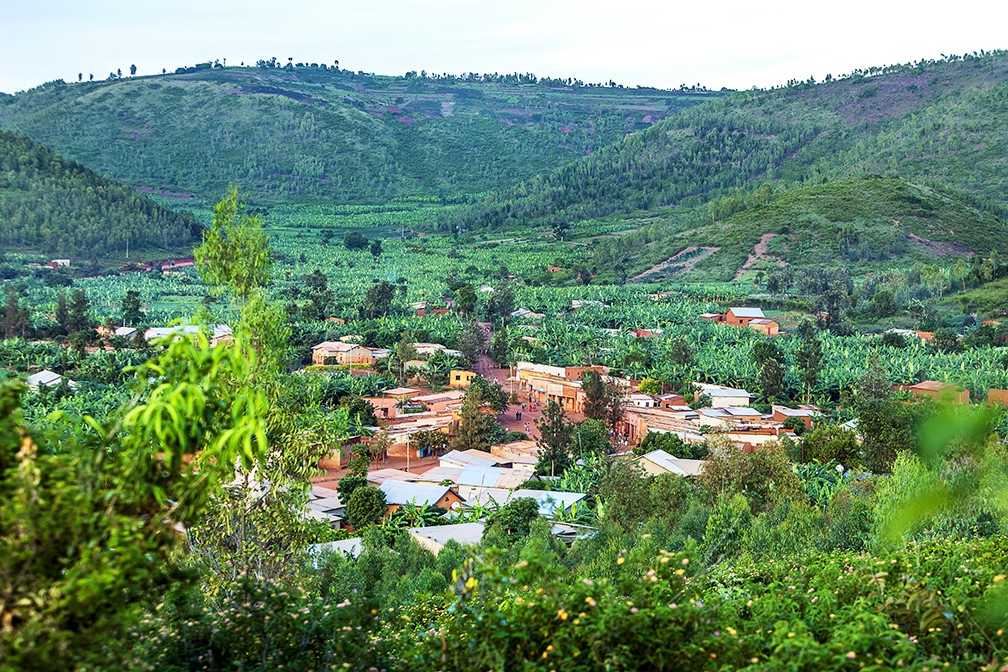
Nearly 12 million people live in Rwanda, one of Africa’s most densely populated nations. But with only two certified reconstructive plastic surgeons serving the entire population, the country lacks the surgical capacity to keep up with patient demands, forcing many people to wait months or even years to receive the care they need.
After witnessing this gap in the country’s health care system during a 2010 medical program, Operation Smile volunteer surgeons Drs. Steve Naum and Bruce Ferris of the United States refused to stand by and watch as people suffered without proper care. Thanks to the initiative and commitment of Steve, Bruce, Rwandan plastic surgeon Dr. Faustin Ntirenganya and Rwandan anesthesiologist Dr. Paulin Banguti, Operation Smile and the University of Rwanda now conduct three-week surgical training rotations twice a year at Rwinkwavu Hospital.
Throughout the three-week sessions, Rwandan general surgery and anesthesia residents learn skills, gain knowledge and practice techniques they will use to perform safe and effective reconstructive plastic surgery procedures. Ready and willing to serve their country, these surgical residents will become part of the solution addressing the country’s massive surgical backlog. Photo: Zute Lightfoot.
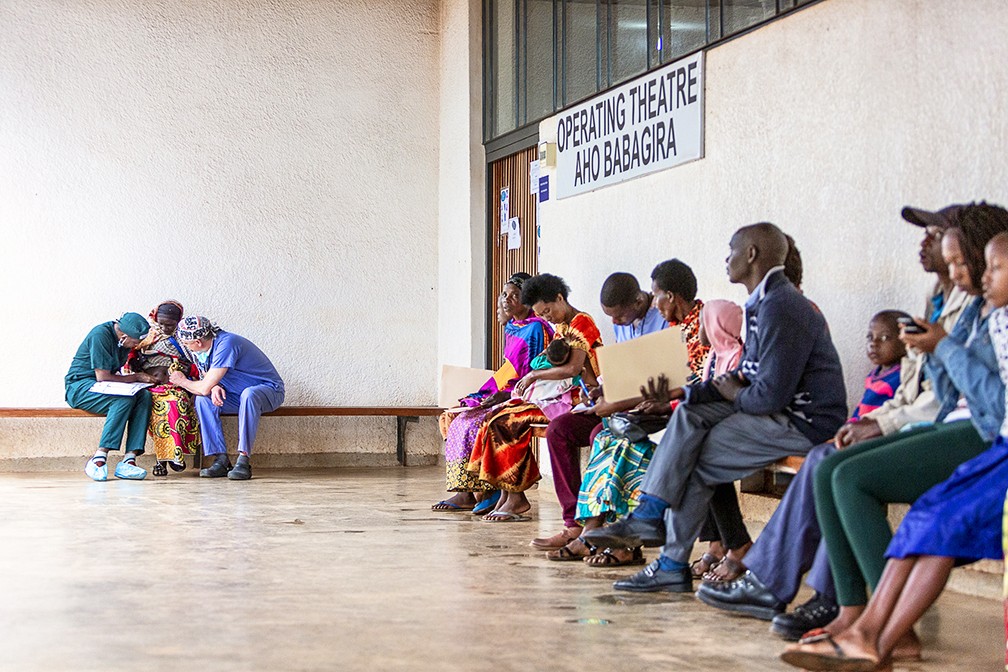
At Rwinkwavu Hospital, potential patients wait to receive their comprehensive health evaluations during the second week of Operation Smile’s April 2019 surgical training rotations in Rwinkwavu, Rwanda. At these medical programs, it’s not unusual for more than 200 – or even 300 – people to arrive at the hospital hoping to have the surgery that they’ve been waiting years to receive. Through the empowerment and education of local surgeons, anesthesiologists and other health care professionals, sustainable solutions are being built so more patients can receive timely surgical care closer to home. Photo: Zute Lightfoot.
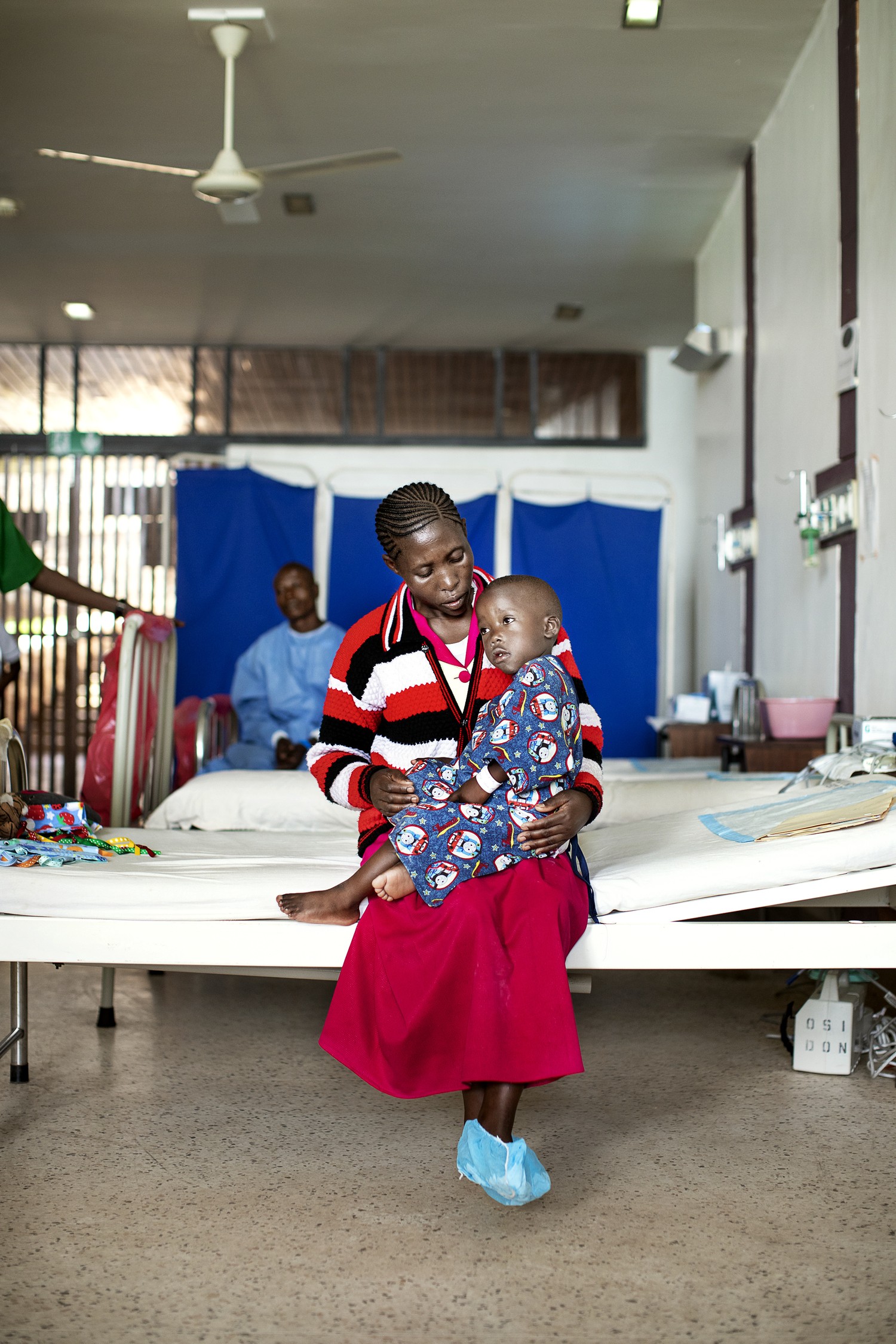
Donatille lovingly holds her 4-year-old son, David, in her arms as she waits for medical volunteers to examine him before surgery. A typical Operation Smile medical program aims to provide the highest-quality of surgical care to patients living with unrepaired cleft conditions. But during surgical training rotations, patients arrive at the program site with various surgical needs – wounds, burns, cleft conditions and other congenital conditions – that require reconstructive plastic surgery.
David was born with a bilateral hand syndactyly, a surgically treatable condition where the toes or fingers of a newborn are fused together. Back home, David has friends, but many of his peers tease him about his hands, often calling him “ibimane,” which means “fused.” After an exhausting 9-hour journey – six hours by bus, two hours by foot and one hour by bike – Donatille arrived at Rwinkwavu with David. But every step they took together was worth it when Operation Smile medical volunteers told Donatille that her son was healthy enough to receive surgery.
“My child will be happy now that his fingers will be like all other children’s hands. He won’t want to hide his hand anymore,” Donatille said. “He will want to show everyone his new hand. If my son is happy, then I am happy.” Photo: Zute Lightfoot.
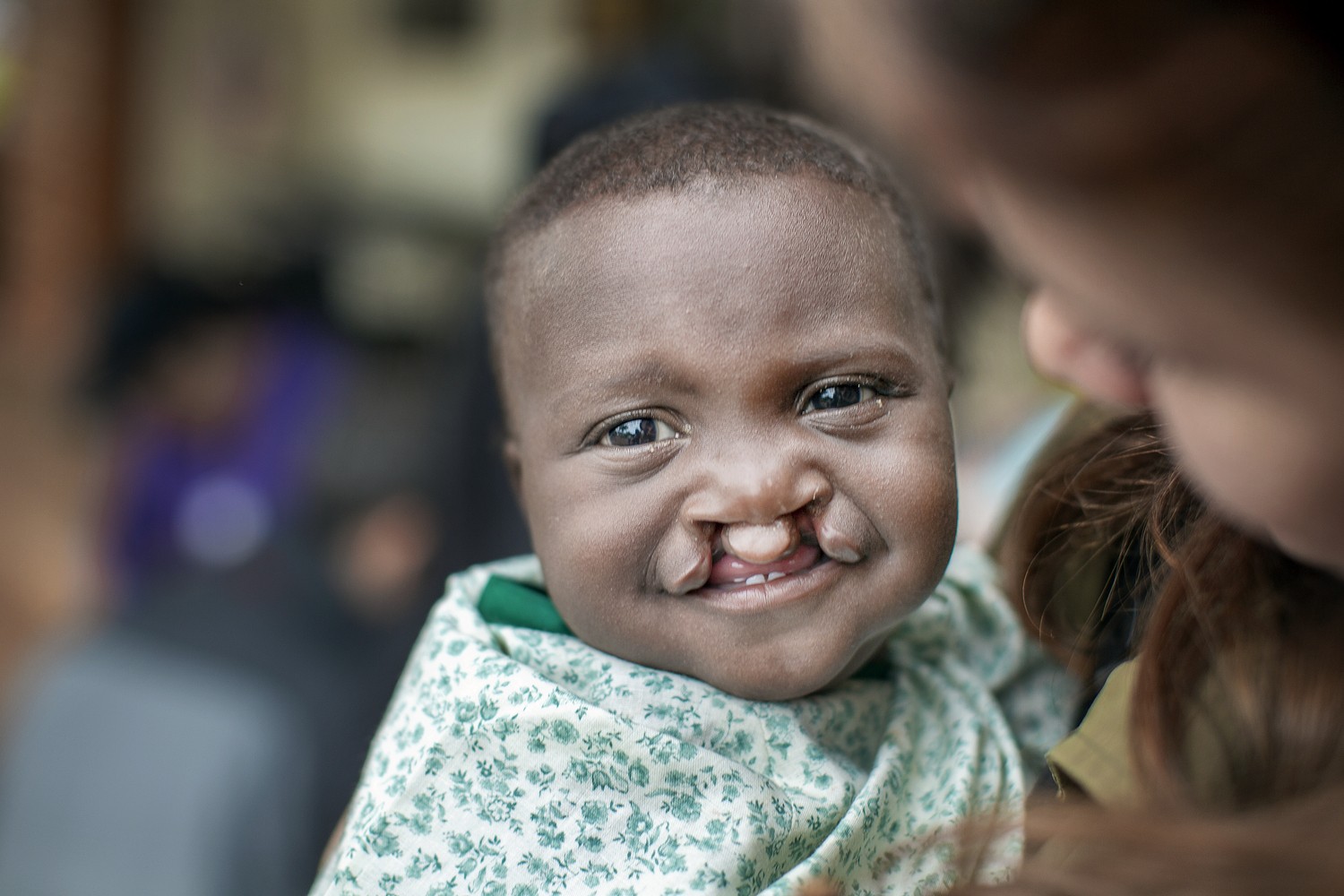
Seventeen-month-old Sandrine and her mother, Angelique, arrived at the surgical training program in Rwanda hoping to hear the answer for which they had been searching for more than a year. When Angelique saw her baby’s cleft lip for the first time, she was devastated, but she never stopped loving her daughter. Sadly, Sandrine’s father, Vincent, didn’t share his wife’s devotion after Sandrine was born. Unable to cope with the stigma associated with Sandrine’s cleft, Vincent refused to accept her as his daughter and forced both Sandrine and Angelique to leave their family home.
With time, Vincent eventually saw past that stigma, and the family agreed to reunite. But many unforeseen challenges would soon follow. In April 2018, Angelique and Sandrine traveled to Rwinkwavu Hospital for screening during an Operation Smile surgical training rotation. However, at just 3 months old, Sandrine was too young for surgery. During another rotation in October later that year, the family was met with heartbreak again when Sandrine’s comprehensive health evaluation determined that she was too malnourished. The pain and disappointment of enduring yet another unsuccessful medical evaluation was too much for Vincent to bear, and he convinced himself that surgery would never happen for his daughter. Once again, he chose to abandon his family. Photo: Zute Lightfoot.
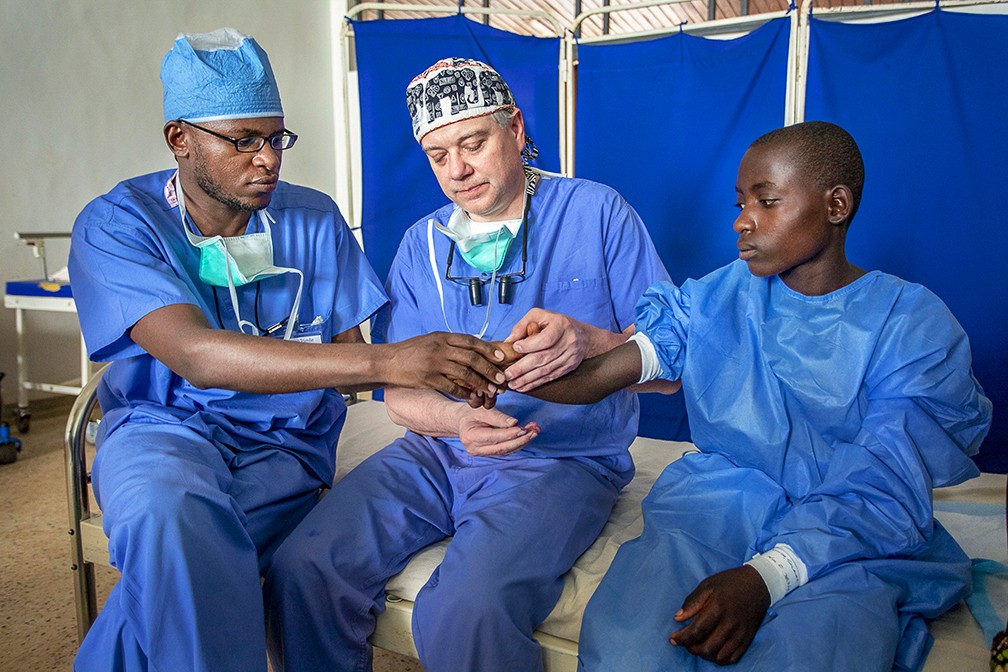
Operation Smile volunteer surgeon Dr. Steve Naum, center, and plastic surgery resident Yves Nezerwa of Rwanda, left, sit with 14-year-old Solange as they detail their surgical process. Solange arrived at the rotation with a severe wrist contracture; a condition in which the wrist is pulled forward toward the palm or backwards toward the forearm due to the shortening of tendons or muscles.
While the condition is painless, a contracture can lead to restricted movement and sometimes results in complete immobility of the hand. But thanks to Operation Smile’s surgical training rotations, patients like Solange are receiving the reconstructive surgery that they need to live a more full and happy life. Photo: Zute Lightfoot.
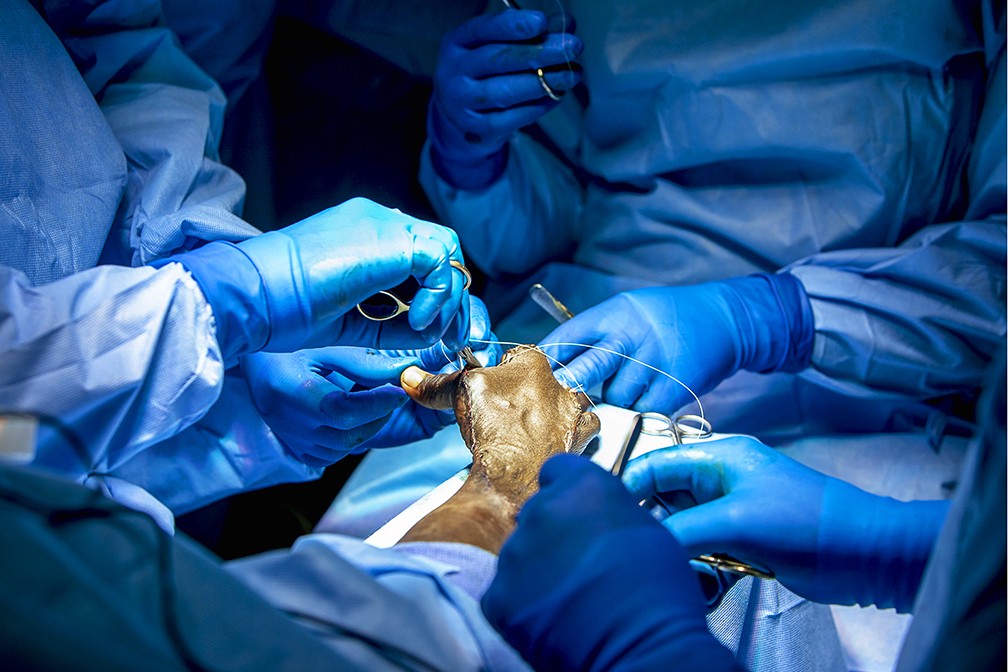
During these training rotations, reconstructive surgery is provided to patients living with a variety of surgically treatable conditions, free of charge. For many people living in Rwanda, paying for surgical care often means that an overwhelming financial burden will fall on an entire family. But thanks to the collaborative work of Operation Smile and the University of Rwanda, parents no longer need to choose between feeding their family and giving their child a better life. Photo: Zute Lightfoot.
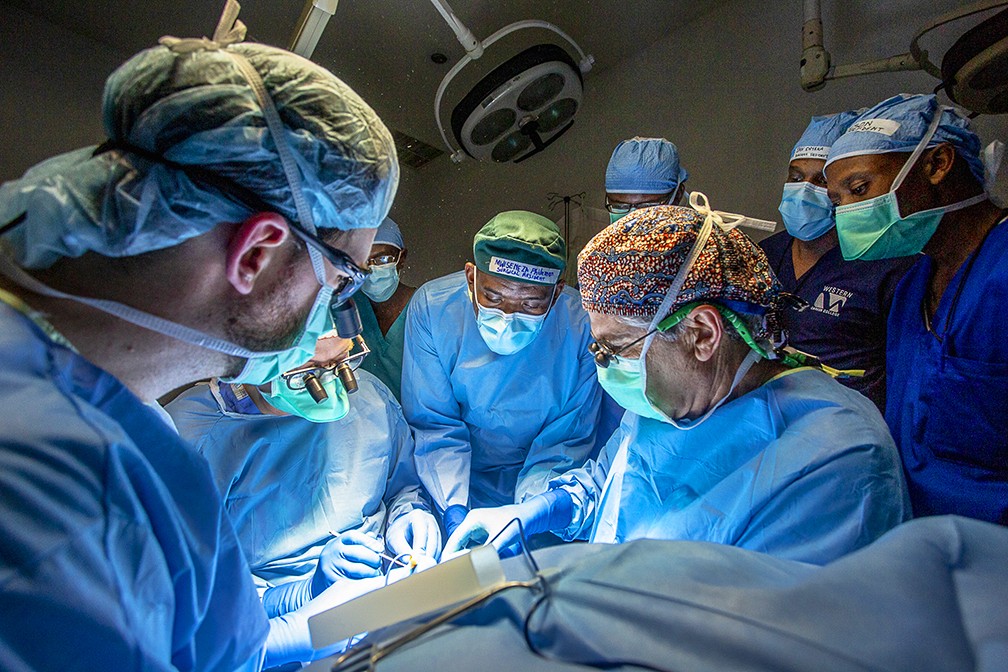
Operation Smile volunteer surgeon Dr. Bruce Ferris demonstrates different surgical techniques to general surgery residents during an operation. Through his experience with the program, Bruce recognizes how the rotations are drastically impacting the lives of people living in Rwanda.
“When I first started investigating doing rotations, it became very obvious to me that there were patients who needed surgical care that just weren’t getting it — languishing in hospitals for a very long time when they could have been cared for,” Bruce said. “It made sense that if we could develop the rotations, many of these patients would be taken care of and not have to be hospitalized for the long term.” Photo: Zute Lightfoot.
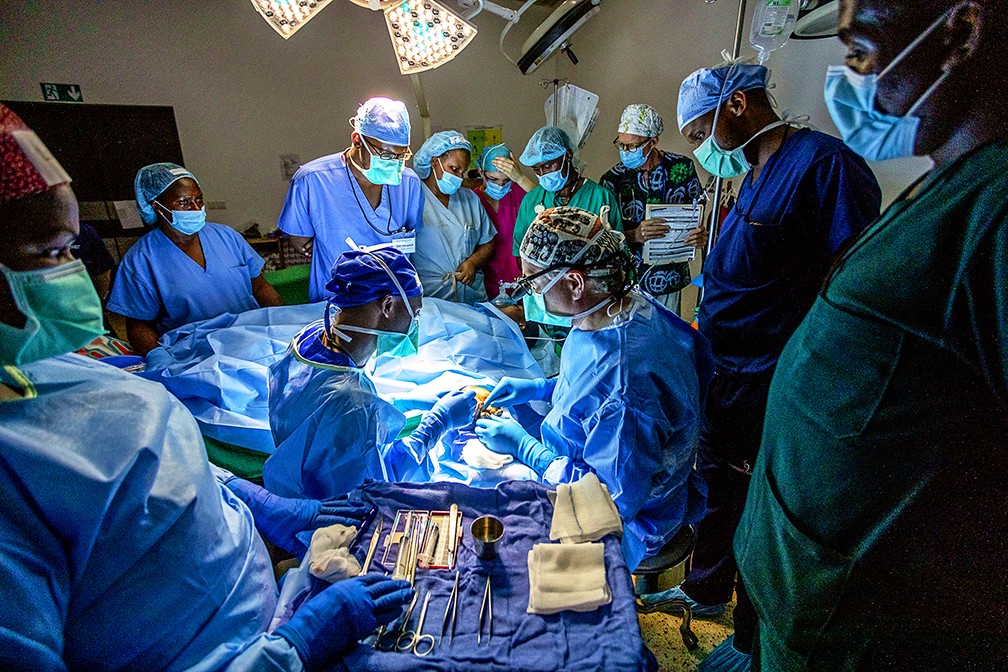
Rwandan surgical residents observe Dr. Steve Naum perform surgery on a patient. Since 1998, Steve has volunteered with Operation Smile to help improve the health and dignity of patients living in Rwanda and around the world. But through his work with the organization, Steve knew that ensuring the longevity of health care in Rwanda meant building sustainable solutions that could last long after a medical program ended.
“It is easy for us to come to a place, do a number of cases, feel good about it and leave; but we don’t leave anything necessarily behind if we have not exchanged information or built some sort of knowledge or skill base for local surgeons to continue,” Steve said. Photo: Zute Lightfoot.
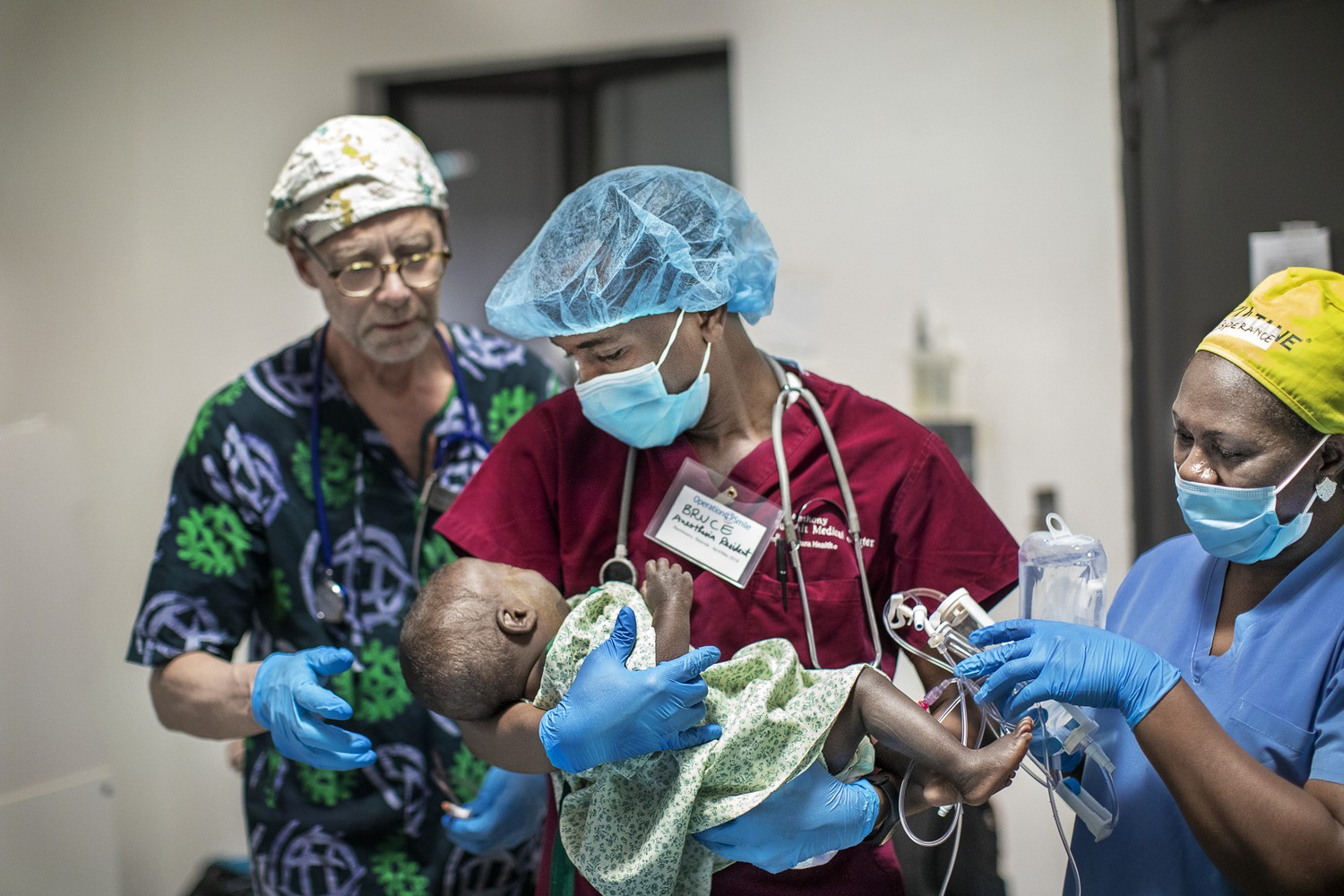
Anesthesiologist resident Bruce Nzobere of Rwanda carries Sandrine back to the recovery room where her mother, Angelique, anxiously waits to see her baby’s new smile. Soon after Sandrine was born, doctors at the local health center explained to Angelique that cleft conditions are common and that surgery was possible to help her daughter. It comforted her to learn that she wasn’t the only mother experiencing something like this. She said that she no longer felt alone.
“My hope was that my child would get surgery,” Angelique said. And because of Operation Smile’s devoted medical volunteers, Angelique’s hopes were realized. Photo: Zute Lightfoot.
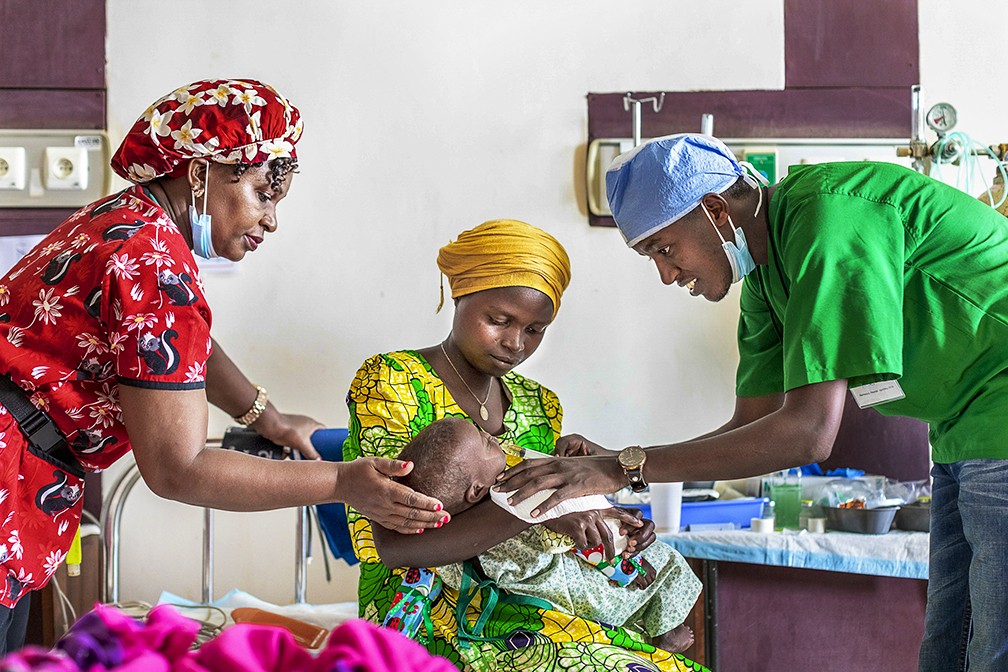
Post-anesthesia care unit and recovery room nurse Florence Wachira of Kenya, left, works with Rwinkwavu Hospital nurse Nikas of Rwanda, right, as Angelique holds Sandrine after her cleft lip surgery. Angelique experienced a mixture of emotions throughout the day of her daughter’s surgery: anxiousness, nervousness but, most importantly, happiness. After enduring the abandonment of her husband and the disappointment of being denied surgery twice, Angelique finally got Sandrine the care she needed for a brighter future.
“She’s going to grow up well. Her health is going to be good,” Angelique said. “All I can say is thank you. I can’t say any more than thank you.” Photo: Zute Lightfoot.
Latest Stories

Mateo's Journey

Meet Isaac

